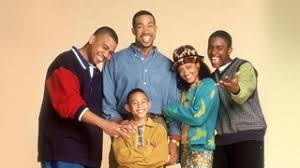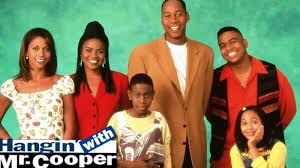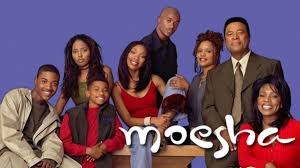In our discussion of 90s Black experiences and cultural expressions, the concept of Sankofa is important to consider for both reflection and analysis. Sankofa is a Twi term from the Akan peoples of mainly Ghana and Cote d’Ivoire, West Africa. The word is a verb meaning “to go back and fetch:” to retrieve important items previously lost, forgotten or stolen. In the context of one’s culture, the idea of Sankofa requires one to both re-learn and adapt crucial skills, collective understandings and overall lessons from his or her ancestors. From this process, it is understood that the person who does the “fetching” receives the power from those “items” of knowledge. The ultimate goal of this retrieval is for one to then project themselves and their descendants into the future, working from informed positions of self-reflection, self-knowledge and self-determination.
For African Americans, in-depth studies of both our historical and current experiences in this country reveal ongoing, consistent reenactments of this Sankofa concept. Documentation of developments in our music, education, fashion, social arenas, family practices – and more – prove our active revitalization and reincorporation of the ways of our ancestors: in Africa, the United States, the Caribbean, South America…wherever people of African descent landed globally, by force or by choice. Our cultural expressions reveal the agency exhibited in sampling, remixing or reinventing what we have learned for practical application in modern times.
From this position, I wanted to tackle the concept of Afrocentricity – which as a term became prominent in the 1980s and 90s. There are many conflicting interpretations of this term, and its often conflated with Afrocentrism, African-centered thought, “Afro-“ vs. “Afri-”, and so on. This happens to the point where the idea of someone being “Afrocentric” entails a host of stereotypical tropes, caricaturing and misunderstandings. This is particularly evident in popular media of this time, as well as public reaction in many Black communities. 90s film characters like “Ahmal” in Sister Act 2, Damon Wayans’ “Conscious Brother” in “In Living Color” episodes, the dreadlocked player on A Different World, and many other examples would depict a kufi-and/or-dashiki-wearing individual spouting random historic statements about “The Pyramids”, ”the white man” or “Shaka Zulu.” Dressed in kente, mismatched colors and military-like gear, this type character would often act in arrogant, misinformed behaviors, which would ultimately isolate them from the larger Black community.
These tropes are a testament to the simplified nature of discussions and expressions relating to what are considered Afrocentric theories and praxis. For some it’s wearing traditional African clothing, for others it’s adopting African names – or also re-identifying with an African ethnic group or spiritual system. For many, its academic scholarship: focusing on prioritized pre-colonial African historical periods deemed “classical” or “enlightened” – above any other cultural expressions or achievements of any other group of people in the world. Conversely, many researchers of African and African Diasporic value systems, knowledge bases and cultures have sought to identify common threads amongst these intricate systems, in an attempt to create blueprints for strategic unification, productive cultural alliances, and community building for liberation and ultimate sovereignty. All of the actions mentioned in this paragraph are interlinked, and are products of individuals making either informed or uninformed choices to change their lives in a way that reconnects them to a cultural source. At the same time, we need to continuously reevaluate our ideas, and challenge ourselves to avoid recreating limiting, dogmatic or one-dimensional systems of cultural expression – where one organization deems themselves “more African” or “more Afrocentric” than the next, based on attire, ideology, spiritual practices, how many visits to Africa they made or how many books they’ve read on Black history.
In looking at the long history of our people in this country, and in the African Diaspora, we have infinite examples of resistance to oppression, reapplication of cultural expressions and innovative methods of growth and renewal. Viewing them all as equally important to consider keeps us from developing an essentialist trait of prioritizing some experiences over others: resulting in an Afrocentric definition that may confine, stereotype and simplify. In the United States, the respect-based process of learning about our families, communities and their solution-building strategies has helped us to overcome all obstacles to survive and go forward. This empowers us to progress with the informed appreciation and application of our African retentions, forms of knowledge and practices. —Kweku Vassall
RANT WARNING! lol: <I would also like to challenge this idea of one being “conscious,” a popular phrase in Black communities in relation to African-centered or Afrocentric thought. Conscious is often said as if all that needs to be learned has been learned – or that there’s this class of enlightened people who know-what-they-don’t-know-their-neighbor-also-knows, because one is so busy being “more informed”. Not to negate people coming to important realizations, BUT knowledge of oneself also deals with positive relationships with others, implementing practical solutions to problems, adapting in various environments and creating new knowledge to fit one’s current situation – all things Black people of all walks of life and ideologies have accomplished. This idea that a few are “awake” and the majority are “asleep” works within this larger misconception that up until recent years Black people were ignorant, chitlin-eatin (non-vegetarian) slaves who couldn’t observe their environments enough to notice oppression, or were disconnected from their ancestors and relatives to point where they had no appreciation for the family values and principles for survival passed down for their benefit. Our grandmothers and grandfathers may have experienced hell (in various class statuses and locations, obvious and hidden torments included), but at the same time, honoring our African ancestors teaches us that the experiences of our most recent African American relatives are valid and worthy or respect, honor and consideration. We should see them as active participants, not passive bystanders, in our history and cultural development. This is true especially considering the marginalization and oppression they faced, how they either thrived or psychologically crumbled as a result, and the sacrifices they all made for us to both be here AND have the privilege to operate in learning spaces to obtain further knowledge that was often hidden from them. It would behoove us to look back to the important information they knew, which can help us even more to face our current reality.>






